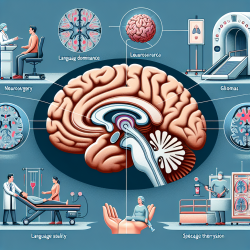Introduction
The 2022 American Heart Association’s Resuscitation Science Symposium (ReSS) provided groundbreaking insights into resuscitation science, with a focus on improving outcomes for cardiac arrest patients. For practitioners in the field, staying updated with these advancements is crucial for enhancing clinical skills and patient care. This blog will delve into key findings from the symposium and discuss how practitioners can integrate these insights into their practice.
Key Findings from the 2022 ReSS
The symposium highlighted several critical areas of research that have the potential to transform resuscitation practices:
- Defibrillation Strategies: New studies explored defibrillation strategies for refractory ventricular fibrillation, suggesting alternative approaches that may improve patient outcomes.
- Temperature Management: Research on device-based fever prevention after cardiac arrest emphasized the importance of targeted temperature management in improving neurological outcomes.
- Public-Access Defibrillation: Innovative approaches to public-access defibrillation, including the use of drones, were discussed as means to reduce response times and improve survival rates.
- Community-Focused Programs: The symposium stressed the importance of community-focused programs to address disparities in cardiac arrest care and improve overall survivorship.
Implementing Research Outcomes in Practice
Practitioners can enhance their resuscitation skills by integrating these research findings into their practice:
- Adopt New Defibrillation Techniques: Consider training on and implementing new defibrillation strategies that have shown promise in recent studies.
- Emphasize Temperature Management: Incorporate targeted temperature management protocols in post-cardiac arrest care to improve patient outcomes.
- Utilize Technology for Rapid Response: Explore the feasibility of using drones for delivering automated external defibrillators (AEDs) in your community to decrease response times.
- Engage in Community Education: Develop or participate in programs aimed at educating the public about cardiac arrest and the importance of timely intervention.
Encouraging Further Research
While the symposium provided valuable insights, continuous research is essential for advancing resuscitation science. Practitioners are encouraged to:
- Stay Informed: Regularly review the latest research and guidelines from reputable sources such as the American Heart Association.
- Participate in Research: Engage in clinical trials or research studies to contribute to the body of knowledge in resuscitation science.
- Collaborate with Peers: Join professional networks or forums to discuss findings and share best practices with other practitioners.
Conclusion
The 2022 ReSS has underscored the importance of staying abreast of the latest research to improve resuscitation outcomes. By implementing the findings discussed and committing to ongoing research, practitioners can enhance their skills and contribute to better patient care.
To read the original research paper, please follow this link: The Latest in Resuscitation Research: Highlights From the 2022 American Heart Association’s Resuscitation Science Symposium.










